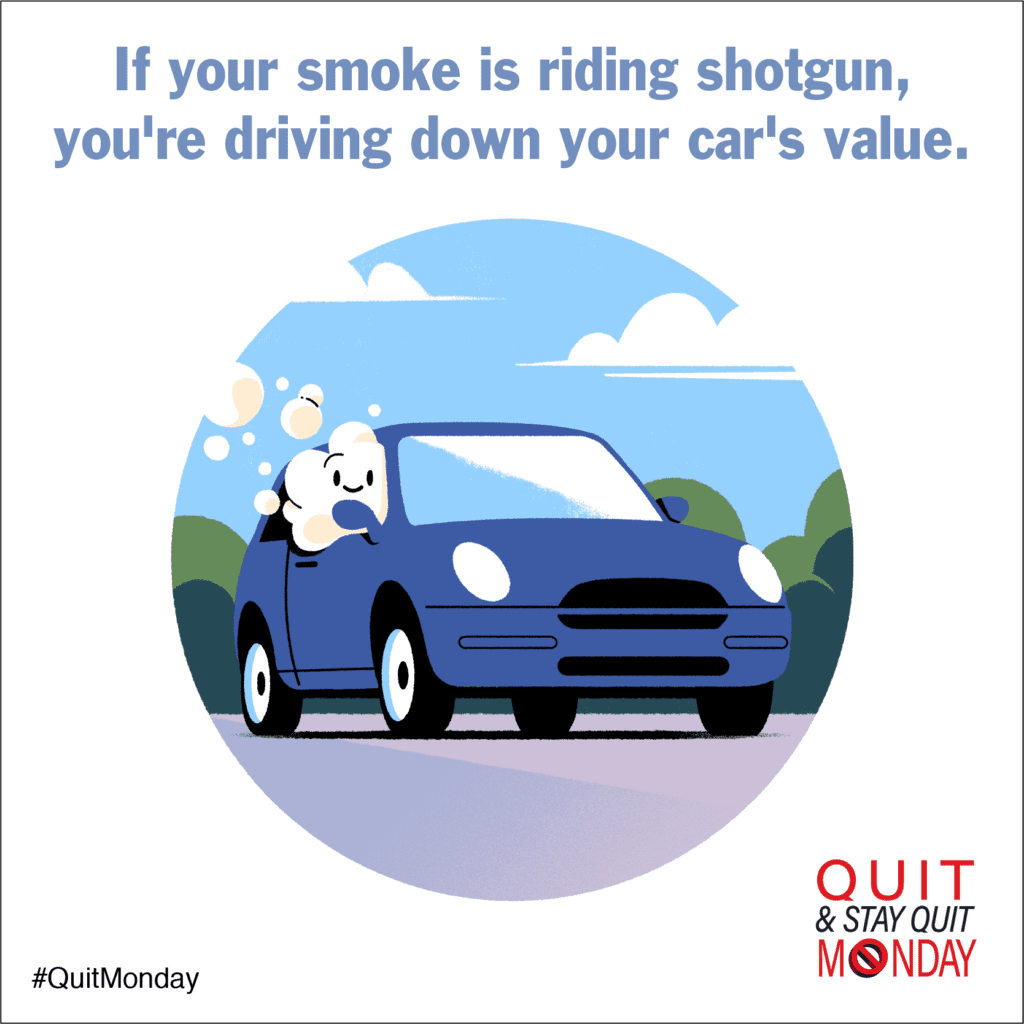Smoking Destroys Much More Than Just Your Lungs
Smoking cigarettes is an expensive habit in more ways than one, but many of these costs are not as obvious as purchasing the pack itself. Not only does cigarette smoke affect the health of your lungs, skin, hair, and teeth, but it finds its way into every pore of your most treasured material possessions.
And that smell and chemical residue of cigarette smoke is difficult to eliminate.
As you continue to smoke, many of your most precious assets (including your health) will depreciate in value. If you’re trying to resell a car of house that someone has thoroughly smoked in, expect to receive a 10 – 30 percent lower return than the average market rate.
Yes, smoking cigarettes is an expensive habit indeed.
Lowers the Value of Your Home:
Smoking in the home can reduce a property’s resale value by nearly 30 percent and makes it more difficult to find a buyer. Around one-third of prospective home buyers refuse to even consider a home in which someone has smoked. The residues from cigarette smoke cling to the walls and other surfaces of the house and often require professional restoration to remove.
Stinks-Up Furniture:
A smoky oak-barrel smell might be a positive attribute of a vintage Boudreaux, but it is certainly not desirable when it comes to your wooden furniture. Odors such as cigarette smoke can penetrate wooden furniture and reduce its quality.
Makes Clothing a Potential Hazard:
The smell of tobacco smoke is incredibly difficult to purge from clothing, so if you don’t want to reek of stale cigarette, you’ll have to be constantly investing in a new wardrobe. Third-hand smoke (THS) — the residual contamination that lingers on fabrics exposed to cigarette smoke — can also be a health hazard to children and pets.
Degrades a Car’s Interior
Smoking can harm the resale health of your car more than a ding, scratch, or extra mileage. A heavy tobacco odor or damage to the upholstery can wipe close to 10 percent off the vehicles value.
